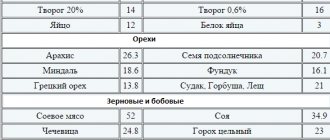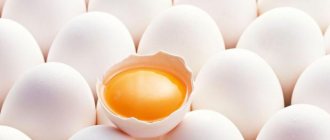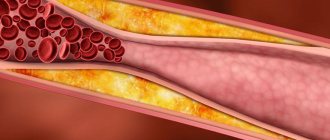- Carbohydrate metabolism
Eating right isn't just about eating healthy foods. For proper nutrition, it is important how often a person eats. How many times a day should you eat? Does diet depend on age, physical activity, what are the differences for those who want to lose weight and gain weight?
Many people believe that you need to eat 5–6 times a day. Is it so? And what are the advantages and disadvantages of diets?
How many times a day do you eat – three or five?
In modern civilization, it is customary to eat three times a day. At the same time, most diets practice dividing the daily portion into 5–6 times. Where is the truth?
Three meals a day
Three meals a day looks like this:
- breakfast at 7 am;
- lunch at 13:00;
- dinner at 7 p.m.
Or plus or minus an hour. The break between meals is six hours. This schedule is tied to an eight-hour working day.
Pros:
- convenient for working people;
- There is an opinion that 6 hours is the minimum break for the proper functioning of the stomach.
This is interesting! One of the first supporters of three meals a day was Avicenna. In his treatise “The Canon of Medicine” it is recommended to divide food into breakfast, lunch and dinner.
Proponents of eating three times a day make the following arguments. The stomach digests food within 6 hours. Adding a new portion of food during this period means interfering with digestion. After the stomach, the contents move to the small intestine, where the process of absorption of nutrients lasts up to 10–14 hours. In case of six-hour breaks, the digestive tract gets enough time to rest and recover.
Fractional meals
Another opinion: long intervals are harmful. During periods of hunger, metabolism slows down, and after overeating, fat increases. Hence the disadvantages of three meals a day:
- during breaks there is a feeling of hunger;
- hunger leads to subsequent overeating.
To prevent this from happening, food is taken every 2 to 3 hours. During the day you need to have three main meals and three snacks. In this mode, the body receives energy evenly.
Pros:
- small portions are easier to digest and go into energy rather than fat;
- Maintains sufficient energy levels throughout the day;
- there is no feeling of hunger, no overeating.
Minuses:
- time is wasted on snacking.
If you eat your daily allowance not in three meals, but in six, then the person does not have time to get hungry. But it is not always the case. With a low daily calorie intake, the opposite effect can occur - a person does not fill up with a small portion and does not satisfy hunger. This is usually true for women trying to lose weight without significant physical activity.
Tips for selecting portions
In fact, learning to eat a reasonable amount of food is not that difficult.
Use the following tips:
- don’t eat stress, just control your emotions;
- eat from small containers to make portions appear larger;
- do not overeat, a feeling of fullness will appear after eating;
- Do not eat more than the size of 2.5 of your own fists.
Maintaining healthy portion sizes is a matter of habit that is fairly easy to develop.
How many times a day should you eat to lose weight?
Experiments show that for weight loss there is no particular advantage to eating six meals a day compared to three meals a day. The subjects followed the prescribed diet for two months. The results were the same in both groups - all participants in the experiment lost weight.
A calorie deficit is important for losing weight. Eating once a day or nine times a day doesn’t matter.
When following a strict diet, there is rather a psychological aspect. Some people find it easier to tolerate restrictions when eating frequently, while others find it easier to regularly skip one or two meals.
This is interesting! It has been proven that partial fasting for 16/8 hours has a positive effect on brain function, reduces the content of harmful substances in the blood, and promotes weight loss. They eat in this mode from 12 noon to 20 pm.
https://youtu.be/cTnO7HBr9lM
Hunger Control
Diet
The essence of fractional nutrition is to divide your daily calorie intake into many small meals. How much exactly depends on your capabilities and desires. As a rule, these are six meals: three main and three snacks.
If your calorie intake is 1,500 kcal, instead of three 500 kcal meals, you eat no more than 250 kcal at a time. This is, for example, one sandwich or a glass of kefir and an apple.
The advantages of this method are that you do not feel hungry throughout the day, due to which you consume less food, even if you do not count calories and do not limit yourself in food.
The reduction in hunger is confirmed by the results of one experiment conducted on young men with normal body weight. Scientists found that by dividing a portion of food into five portions and giving each portion an hour later, subjects were able to control their appetite better than when they ate one portion at a time.
In addition, frequent meals reduce the level of glucose and bad cholesterol in the blood. This is supported by a study that compared the benefits of eating 17 snacks a day versus eating a regular three meals a day. People who ate frequently were found to have lower levels of fasting total cholesterol, low-density lipoprotein and apolipoprotein B, the carriers of bad cholesterol. In addition, their blood glucose levels and C-peptide output in daily urine decreased.
A decrease in blood insulin levels with six meals a day was also confirmed in the study.
It's impossible to say for sure whether eating smaller meals helps you lose weight, as some studies don't find any benefits of frequent meals for weight loss. But since there is still evidence of the benefits of this diet, why not try it?
Consider fractional meals if:
- you are overweight and are looking for ways to get rid of it;
- you have the opportunity to have a snack during the day;
- you often feel hungry during the day and overeat in the evening;
- you want to reduce your bad cholesterol and insulin levels.
We've sorted out three meals a day and split meals. There is another food intake pattern that is recommended as beneficial for health - short-term fasting.
Diet
Short-term fasting is an eating plan in which you drink only water for 16-18 hours, and the rest of the time you eat as much as you want, but without overeating or junk food. There is also another scheme - eating regular meals five days a week and fasting for 24 hours twice a week.
Short-term fasting can be called a fashionable trend, but such eating patterns have been encountered in history. For example, historian Caroline Yeldham says that the ancient Romans ate once a day around noon. They took great care of their digestion, and eating more than once a day was considered gluttony.
There are quite a few studies that show the benefits of fasting, but most of them were conducted on animals. For example, an experiment on mice proved the benefits of short-term fasting for the cardiovascular system. In addition, there was a decrease in insulin, leptin and cholesterol levels, as well as an increase in testosterone levels.
According to Mark Mattson, a senior researcher at the National Institute on Aging, fasting reduces inflammatory markers in the blood and reduces oxidative stress, supporting learning and memory.
The study participants, overweight adults with asthma, consumed just 20% of their caloric intake on some days. Over eight weeks, they lost 8% of their body weight, had lower levels of markers of oxidative stress and inflammation in their blood, reduced asthma symptoms, and improved some measures of quality of life.
Mattson also researched the benefits of fasting for the brain. If you don't eat for 10 to 16 hours, your body will draw energy from fat stores and fatty acids will enter the bloodstream. This will have a positive effect on cognitive functions such as memory and learning ability, and will also slow down destructive processes in the brain.
However, according to Dr. Stephen Freedland, a professor of urology at Duke University Medical Center in Durham, caloric restriction is of great, if not decisive, importance.
Dr. Friedland and colleagues examined the effects of short-term fasting on the development of prostate cancer in mice. The mice fasted twice a week for 24 hours and overeated the rest of the time. As a result, they did not lose weight and did not receive any benefits from fasting - the growth of the cancerous tumor did not slow down.
Friedland believes that an overall reduction in calories is more important for health than periods of fasting. That is, you can only benefit from fasting if the rest of the time you eat healthy foods and do not overeat.
You should try short-term fasting if:
- you can't lose weight and want to try something new;
- you don’t feel hungry in the morning (for example, if you choose to fast for 16 hours every day and eat at 8 p.m., the next time you can eat only at 12 p.m.);
- you don't want to spend a lot of time cooking.
Which diet is right for you? Tell us in the comments.
People who are overweight usually cannot control the feeling of hunger. Such eating behavior is developed as a result of systematic violations. The body gets used to receiving a lot of simple calories and requires a new portion every few hours. The result of this is a hormonal imbalance.
A complete refusal of food cannot give an immediate effect. Metabolism begins to change only after three days, and such fasting is also not beneficial. To adjust your diet in favor of the right one, you need to monitor your own feeling of hunger. If it occurs within 2-3 hours after a meal, it means that the person eats too much sweets and bread, that is, empty calories, and not enough fiber, that is, vegetables.
How many times a day should you eat to gain weight?
It also doesn’t matter how many times a day you eat to gain weight. The main thing is the amount of calories and food. Another point is that people whose diet contains a lot of calories get full quickly. In this case, frequent snacking will help you eat more.
Studies done on athletes show that body composition improves with frequent meals. Protein is well absorbed in the amount of 20 - 30 g at one time. And a large number of calories is difficult to fit into three servings of food.
Read also: What can you eat before bed?
This is interesting! Professional bodybuilders consume up to 9 thousand calories and eat 7 - 9 times a day.
To gain muscle mass, eat 6 meals a day at intervals of 2 to 3 hours. The main meal is breakfast and before training. After exercise - a recovery meal, a light dinner.
Advantages:
- With a low-calorie diet, less lean muscle mass is lost;
- anaerobic power increases;
- fat utilization improves.
How often to eat while losing weight
Many weight loss materials say that morning meals are ideal for consuming any food. There is no scientific evidence that metabolism is higher in the morning than at other times of the day. Refusal or, conversely, a hearty breakfast does not affect the metabolic rate.
Intermittent fasting, which involves abstaining from food between noon and 8 p.m., is gaining popularity among those losing weight. This kind of nutrition has become fashionable for the simple reason that it allows you to not control the number of calories you eat, but creates a deficit for 16 hours, since that is how many hours a day you don’t eat.
Portion rate
In order to find out the daily food weight necessary for the normal functioning of the body and getting rid of extra pounds, you need to perform the following calculations:
- Calculate the daily kilocalorie requirement (DK) required by the body. To determine the value of this norm for men and women, the Mifflin-San Geor formula is used:
DNA for males = (9.99×M) (6.25×H) (4.92×Age) 5;
DNA for women = (9.99×M) (6.25×H) (4.92×Age) – 161,
- M – body weight, kg;
- H – height, cm;
- Age – age, full years.
- Multiply the resulting daily calorie intake by the correction factor (Ka), which takes into account the degree of human activity.
| Activity level | Correction factor, Ka |
| Sedentary work, inactive lifestyle | 1,2 |
| Light physical activity (daily exercise, walking 2-3 times a week) | 1,4 |
| Regular training (2-3 times a week), active lifestyle | 1,6 |
| Active sports (daily workouts), heavy physical activity at work | 2 |
- Reduce the resulting value by 10-20% - by reducing the daily requirement of kilocalories by only 10-20%, a person does not cause much damage to his body and provokes him to lose weight and gradually lose extra pounds. To calculate the amount of daily kilocalories required for weight loss (DNA for weight loss), the value obtained as a result of the two points above is multiplied by 0.9-0.8.
- The resulting kilocalorie values must be divided into 4-5 meals, taking into account the prepared diet and the energy value of the foods included in it, and calculate their weight for each meal.
Calculation example
Calculation required
Initial data:
- The subject is a 35-year-old woman weighing 70 kg and height 165 cm (1.65 m), leading a sedentary lifestyle (office worker).
- The optimal BMI is the body mass index, equal to the ratio of a person’s weight to the square of his height, for women of a given age is 22.95.
Calculation:
- Using the value of the optimal BMI (22.95), normal weight (Mnorm) is calculated for this age and height:
Mnorm = BMInorm.× Height2 = 22.95 × (1.65 × 1.65) = 62 kg.
On a note. Accordingly, the excess weight value is 70-62 = 8 kg.
- The daily calorie requirement (DNA), calculated using the Mifflin-San Geor formula, taking into account the coefficient taking into account human activity (Ka), for such a woman will be equal to:
DNA=((9.99×70) (6.25×165) (4.92×35)-161) × 1.2=2090 kcal.
- To lose weight without harm, such a woman needs to reduce her calorie intake by 20% per day. Accordingly, the daily calorie intake for weight loss (DNA for weight loss) for her will be 2090 × 0.8 = 1672 Kcal;
- If we divide this daily norm into 5 meals, it turns out that at one time this woman can eat foods with a total energy value of 334 Kcal. So, with this calculation, breakfast should consist of 150 g of low-fat cottage cheese (234 Kcal), green tea without sugar (0 Kcal) and 2 large oranges weighing 250-300 g. (approximately 100 Kcal). Thus, a single portion consumed for breakfast in grams for weight loss will weigh only 400-450 grams.
- Daily consumption of the above-mentioned amount of kilocalories and following a diet will allow you to get rid of extra 8 kg in 1.5-2 months, with a healthy loss of 150-200 g of excess weight per day.
This simple method of calculating the amount of food without going to specialists will allow you to independently calculate how many grams you need to eat in order to lose weight and not “make money” as a result of unnecessary illnesses in the form of digestive disorders and too much weight loss below the permissible value.
Important! To lose weight, you need a properly formulated diet, not starvation. With a complete refusal of food, the body, contrary to the expectations of many, does not burn excess fat, but first of all depletes muscle tissue. This leads to disruption of many functions of the gastrointestinal tract, causes a decrease in the strength of bone and cartilage tissue, and in the most advanced cases contributes to the development of dystrophy and growth retardation.
When losing weight, you need to eat fractionally, dividing your daily food requirement into 4-5 meals. Also, for the normal functioning of the body in the intervals between meals, it is necessary to drink a lot of liquid: simple purified drinking water, green or black tea without sugar. Moreover, all food consumed should not contain preservatives, GMOs, harmful additives, or flavor enhancers.
Important! When losing weight, you should never “take bites” - eat anything after or before meals. This habit, more typical for young children, not only suppresses appetite, but also negates the benefits of the diet. Also, when losing weight, you should exclude from your diet all alcohol (beer, champagne, wine), carbonated and energy drinks, flour, sweets, processed foods, fast food (burgers, fries, hot dogs, etc.).
The effect of frequency of meals on health
Short-term (lasting two to three months) studies were conducted in this direction. Their results suggest the benefits of frequent meals for people with health problems.
Carbohydrate metabolism
Frequent snacking reduces insulin levels and blood sugar.
More pronounced results were obtained in subjects whose diet was dominated by complex carbohydrates.
Cholesterol
A single meal leads to an increase in serum lipids (phospholipids, esterified fatty acids and cholesterol). When dividing the daily portion of food by 8–10 times, a decrease was noted.
In general, the level of “bad” cholesterol is 5% lower in people who eat 5 to 6 times a day.
Hypertension
According to the therapeutic diet (No. 10), for hypertension it is recommended to eat up to 4 – 5 times a day in small portions. Fractional nutrition allows you to reduce the load on the cardiovascular system and digestive tract.
This is interesting! It has been experimentally proven that with a single meal, compared to three meals a day, subjects' blood pressure increases.
https://youtu.be/OXdM5FYmxQY
Prohibited Products
Despite the fact that proper and fractional nutrition does not have such severe restrictions as with strict diets, there is still a list of foods that must be avoided due to the presence of trans fats in their composition. These include:
- margarine;
- snacks - chips, crackers;
- mayonnaise and other sauces based on it;
- store-bought juices;
- carbonated drinks.
Healthy recipes include a minimum amount of salt and hot spices, since salt retains fluid in the body, and spices stimulate appetite. The basis of the diet for weight loss is cereals, lean meats and fish, vegetables (for example, bean salad) and fruits that contain essential vitamins. Dairy and fermented milk products must be present in the diet; without milk and kefir, the body will not receive sufficient amounts of calcium and other microelements.
The diet should contain gluten, the source of which is cereals, flour and baked goods. Preference should be given to wholemeal flour. It is recommended to drink tea and coffee without sugar.










